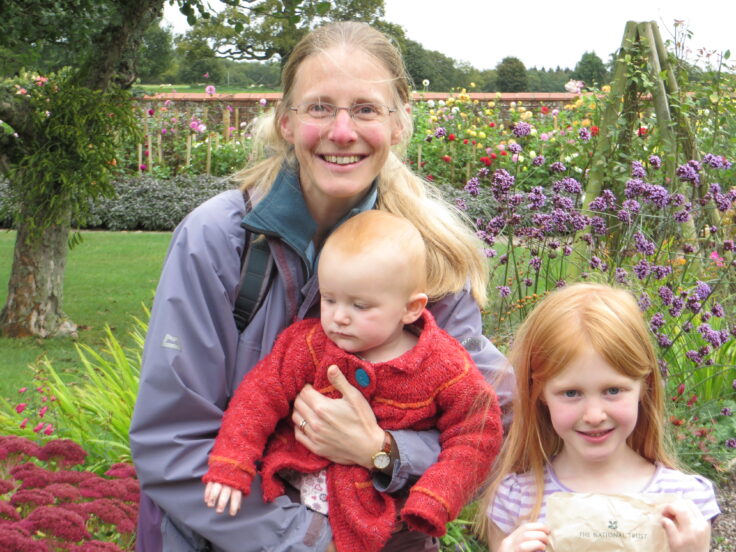19 November, 2015 Marie byrd Land
Being a parent working in Antarctica
BAS geologist and mother, Jo Johnson, describes her feelings about leaving her family whilst undertaking Antarctic fieldwork
It’s fair to say that undertaking an Antarctic field season brings with it lots of emotion: excitement about travelling to such a beautiful place, anxiety over whether our well-laid plans will work out, whether the weather will be kind to us, and so on. For all of us who work in Antarctica, I think there is also sadness at leaving behind people we love, even though it’s only for a few months. In this post, I want to share a few things about being a parent and going “South”.
I am, of course, working hard at BAS on preparations for this trip. What most people don’t see is the preparation that must go on at home as well. For me this does not just involve working out what to pack in my suitcase and arranging people to pay the bills whilst I am away for 11 weeks, but also working out how to prepare two young children for my extended absence. My girls are 2 and 7. I have been South once since the older one was born, when she was 3, so she remembers it well and knows roughly what to expect. The younger one has no idea what is about to happen.

I swing between feelings of guilt at leaving them, guilt at leaving my husband to be a single parent for 11 weeks, and the inevitable excitement and trepidation about my upcoming adventure. And then there are practicalities: how will my husband get to work (in London) and pick the children up at 4pm from school/nursery (in Cambridge)? What happens if he gets ill?
There are unsung heroes behind every person who goes South – those who stay behind to keep life together, the partners, grandparents, colleagues and friends who rally their support. In my case, I have an amazing husband who has a fantastically flexible and understanding employer, and a network of friends who have offered their help. I am confident that side of things will be OK. My husband says he “will make it work”.
On the other side, it’s not easy to figure out how to prepare one’s children for extended parental absence. After all, even a brilliant description of what it’s like to live in Antarctica isn’t going to help them when they just need a cuddle from mum. Good communications would help, but alas the internet is virtually non-existent when camping in remote areas, and phone calls are not much better: I remember a call home on a satellite phone when my daughter didn’t recognise that it was me because of the distortion on the line. It was pretty upsetting. A better alternative, we found, was to e-mail. E-mails, sent via satellite phone, can be read and re-read, giving lasting pleasure for both sides. Last time I went South, I helped my little girl make a calendar with photos of Antarctica, so she could count down the days to my return. This worked well, and fortunately my return wasn’t delayed at all – something that is common when working in a logistically-challenging environment – as she would have run out of doors on the calendar to open!
Preparing a 2-year old is going to be harder. She doesn’t understand anything about Antarctica or why I’m going. She cannot tell her friends much about how she is feeling. I know the physical separation will be the hardest thing for both her and me, and giving up the intimacy we have shared through feeding is going to be tough. But I am also heartened by knowing that she won’t remember our separation for long, as little ones live so much “in the moment”. And of course she can have cuddles from her sister and Daddy, even though they are not quite the same as mine! Our experience as a family is that the hardest days of separation are the first couple of weeks after my departure, but after that it just seems like a long time. Probably the best thing of all is being reunited after 11 weeks. Last time I went South, homecoming was one of the sweetest moments of my life. It still brings tears to my eyes when I think of it. I will get through by getting stuck into my research, as my husband deals with nappies, tantrums, the school run, and all the things that I am actually quite happy to miss. I owe him a lot. Maybe he’ll even have the 2-year old potty trained by the time I return?!
In November 2015 geologist Joanne Johnson and 3 colleagues set off to work at one of the most remote parts of Antarctica to find out what’s causing the changes to the West Antarctic Ice Sheet.
